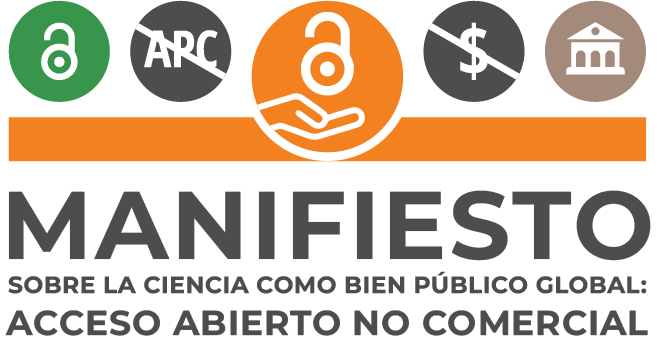Optimizing the Effectiveness of Chat GPT’s Feedback on ESL Student's Written Productions
An approach from the programmer teacher
DOI:
https://doi.org/10.59343/yuyay.v3i2.69Keywords:
Artificial Intelligence, ESL Feedback, Rubric Evaluation, Prompt Engineering, Language LearningAbstract
This essay explores the integration of AI technologies, specifically ChatGPT, into ESL education to enhance the feedback process. It argues for a rubric-based framework to ensure the feedback aligns with pedagogical objectives and effectively meets student needs. The discussion includes various studies highlighting the importance of feedback in language learning and the potential of AI to offer timely, personalized feedback. By employing a systematic evaluation of ChatGPT’s responses through a well-defined rubric, educators can refine the feedback to be more supportive and effective. This approach not only optimizes AI's utility in ESL education but also promotes a deeper understanding of effective teaching and learning strategies. The essay underscores the transformative potential of AI in education, advocating for a balanced integration that enhances rather than replaces traditional educational methods.
Downloads
References
Agbayahoun, J. P. (2016). Teacher Written Feedback on Student Writing: Teachers' and Learners' Perspectives. Theory & Practice in Language Studies. Theory and Practice in Language Studies, 6(10), pp. 1895-1904. http://dx.doi.org/10.17507/tpls.0610.01
Cui Y, Schunn CD, Gai X, Jiang Y and Wang Z (2021) Effects of Trained Peer vs. Teacher Feedback on EFL Students’ Writing Performance, Self-Efficacy, and Internalization of Motivation. Front. Psychol. 12:788474.
Ene, E., & Kosobucki, V. (2016). Rubrics and corrective feedback in ESL writing: A longitudinal case study of an L2 writer. Assessing writing, 30, 3-20. https://doi.org/10.1016/j.asw.2016.06.003
Hyland, K., & Hyland, F. (2006). Feedback on second language students' writing. Language teaching, 39(2), 83-101. https://doi.org/10.1017/S0261444806003399
Ismail, N., Maulan, S., & Hasan, N. H. (2008). The impact of teacher feedback on ESL students’ writing performance. Academic Journal of Social Studies, 8(1), 45-54.
Jacobsen, L. J., & Weber, K. E. (2023, September 29). The Promises and Pitfalls of ChatGPT as a Feedback Provider in Higher Education: An Exploratory Study of Prompt Engineering and the Quality of AI-Driven Feedback. https://doi.org/10.31219/osf.io/cr257
Kostka, I., & Toncelli, R. (2023). Exploring applications of ChatGPT to English language teaching: Opportunities, challenges, and recommendations. Tesl-Ej, 27(3), n3.
López Casoli, M. (2023). The Effectiveness of Teacher Feedback on Writing: Teaching English As A Foreign Language Students' Perceptions. UCMaule-Revista Académica de la Universidad Católica del Maule, (65)., ISO 690.
Marvin, G., Hellen, N., Jjingo, D., Nakatumba-Nabende, J. (2024). Prompt Engineering in Large Language Models. In: Jacob, I.J., Piramuthu, S., Falkowski-Gilski, P. (eds) Data Intelligence and Cognitive Informatics. ICDICI 2023. Algorithms for Intelligent Systems. Springer, Singapore. https://doi.org/10.1007/978-981-99-7962-2_30
Razali, R., & Jupri, R. (2014). Exploring teacher written feedback and student revisions on ESL students’ writing. IOSR Journal of Humanities and Social Science (JHSS), 19(5), 63-70.
Schmidt, D. C., Spencer-Smith, J., Fu, Q., & White, J. (2024). Towards a catalog of prompt patterns to enhance the discipline of prompt engineering. ACM SIGAda Ada Letters, 43(2), 43-51.
Stevenson, M., & Phakiti, A. (2019). Automated feedback and second language writing. Feedback in second language writing: Contexts and issues, 125-142.
Wang, J., & Brown, M. S. (2007). Automated essay scoring versus human scoring: A comparative study. Journal of technology, Learning, and assessment, 6(2), n2. https://eric.ed.gov/?id=EJ838612
Yoon, S. Y., Miszoglad, E., & Pierce, L. R. (2023). Evaluation of ChatGPT Feedback on ELL Writers' Coherence and Cohesion. arXiv preprint arXiv:2310.06505.
Yu, R., & Yang, L. (2021). ESL/EFL Learners' Responses to Teacher Written Feedback: Reviewing a Recent Decade of Empirical Studies. Frontiers in Psychology, 12, 735101.

Published
Issue
Section
Categories
License
Copyright (c) 2024 Roque Jacinto Hernández

This work is licensed under a Creative Commons Attribution-NonCommercial-NoDerivatives 4.0 International License.
You are free to:
Share — copy and redistribute material in any medium or format.
- Licensor cannot revoke these freedoms if you follow the terms of the license.
Attribution — You must give credit appropriately, provide a link to the license, and indicate if any changes have been made. You may do so in any reasonable way, but not in a manner that suggests that you or your use are supported by the licensor.
NonCommercial — You may not use the material for commercial purposes.
NonDerivatives — If you remix, transform, or create from the material , you may not distribute the modified material.
No additional restrictions — You may not apply legal terms or technological measures that legally restrict others from making any use permitted by the license.



























